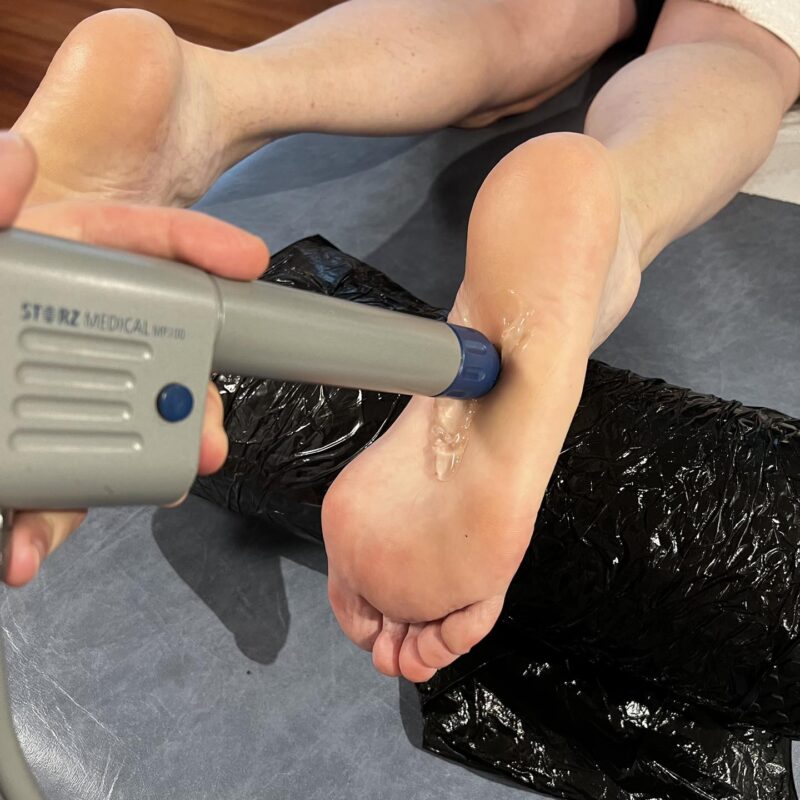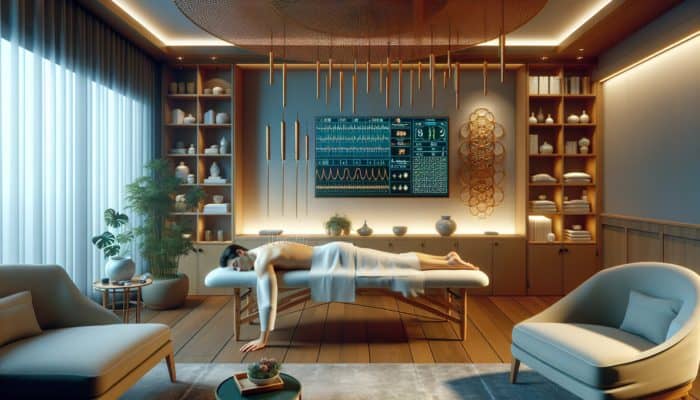Acupuncture: A Natural Solution for Insomnia
Insomnia is a frequent sleep disorder defined by difficulties falling asleep, remaining asleep, or having non-restorative sleep. It might be a temporary problem lasting a few nights or weeks or a chronic illness lasting months or even years. Insomnia is commonly caused by stress, worry, depression, poor sleep patterns, certain drugs, coffee, and other medical issues.
Prolonged sleep loss negatively impacts physical and emotional well-being. On a physical level, it can weaken the immune system, increase the danger of cardiovascular disease, diabetes, and obesity, and hinder mental acuity. On a mental level, anxiety, depression, mood changes, and irritability could result. Potentially impacted cognitive abilities include attention, memory, and judgement.
When you repeatedly fail to get enough sleep, it can hurt both your mental and physical health. On a physical level, it can weaken the immune system, increase the danger of cardiovascular disease, diabetes, and obesity, and hinder mental acuity. Mentally, it might cause irritation, mood swings, anxiety, and sadness. It may also impair focus, memory, and decision-making ability. However, by understanding and addressing sleeplessness effectively, we can avoid these harmful health repercussions and take control of our well-being.
Most Important Points to Remember
- Insomnia is a sleep disorder characterized by difficulty falling asleep, staying asleep, or waking up too early.
- Common causes of insomnia include stress, anxiety, depression, poor sleep habits, and certain medications.
- Chronic sleep deprivation can lead to a weakened immune system, increased risk of chronic diseases, impaired cognitive function, and mood disturbances.
- Acupuncture promotes better sleep by stimulating specific points to regulate the body's energy flow and promote relaxation.
- Research supports the effectiveness of acupuncture in improving sleep quality and reducing insomnia symptoms.
- Acupuncture benefits insomnia by reducing anxiety, promoting relaxation, and balancing the body's energy flow.
- Studies have shown that acupuncture can increase melatonin production, regulate the sleep-wake cycle, and improve overall sleep quality.
- Acupuncture points commonly used for treating insomnia include Shenmen, Sishencong, Anmian, and Yin Tang.
- Acupuncturists stimulate these points using thin needles to promote relaxation, reduce stress, and improve sleep quality.
- Shenmen, located on the ear, is known for its calming and sedative effects, while Anmian, located behind the ear, helps to calm the mind and promote sleep.
- Traditional Chinese medicine principles related to sleep focus on balancing the body's energy, or Qi, and promoting harmony between yin and yang.
- Herbal remedies such as chamomile, valerian root, and lavender, as well as dietary recommendations like warm, easily digestible foods, can support better sleep.
- TCM modalities like acupressure, herbal medicine, and Qi gong can complement acupuncture for insomnia treatment.
- During an acupuncture session for insomnia, the acupuncturist will conduct an initial consultation to assess the patient's sleep patterns, lifestyle, and overall health.
- The treatment involves inserting thin needles into specific acupoints to promote relaxation, reduce stress, and improve sleep quality.
- Patients may need multiple sessions over several weeks or months for optimal results.
- Creating a sleep-friendly environment involves minimizing noise and light, maintaining a comfortable temperature, and using relaxation techniques like meditation or deep breathing.
- Healthy habits such as maintaining a regular sleep schedule, avoiding caffeine and electronic devices before bed, and engaging in physical activity can improve sleep quality.
- Stress management techniques like yoga, meditation, or tai chi can complement acupuncture therapy for insomnia.
- Integrating acupuncture with other approaches for insomnia may involve collaborating with healthcare providers such as psychologists, nutritionists, or sleep specialists.
- Complementary therapies like yoga, meditation, or massage can promote relaxation, reduce stress, and improve sleep quality.
- Addressing underlying health issues such as anxiety, depression, or chronic pain is essential for effectively treating insomnia.
 How Acupuncture Can Help with Insomnia
How Acupuncture Can Help with Insomnia
For ages, acupuncture has been a mainstay of traditional Chinese medicine (TCM) for its calming effects and ability to promote restful sleep. This holistic approach to health focuses on regulating the body's energy flow, or qi, by stimulating certain places on the body. Acupuncture promotes improved sleep by regulating the neurological system, lowering stress and anxiety, and correcting internal imbalances that may be causing insomnia. Acupuncture for insomnia provides excellent sleep quality, fewer nightly awakenings, and a general sensation of relaxation and well-being.
Numerous scientific investigations and clinical trials have shown that acupuncture increases sleep quality. The Journal of Alternative and Complementary Medicine published a study in which patients who suffered from insomnia reported significantly better sleep quality after undergoing acupuncture treatment. Another study, another study in the Journal of Sleep Research found that acupuncture effectively reduced insomnia severity and improved overall sleep quality. These robust findings underscore the potential of acupuncture as a safe and natural therapeutic option for individuals struggling with sleep problems.
Acupuncture Points for Sleep
Acupuncturists regularly employ specific acupoints to treat insomnia and improve sleep. Shenmen (HT7), Sanyinjiao (SP6), Anmian, and Yintang are some of the most important acupuncture points for treating insomnia. Shenmen, placed on the wrist, is recognised for its calming and relaxing effects on the mind and body. Sanyinjiao is placed on the lower thigh and is thought to nourish blood and yin, promoting relaxation and decreasing anxiety. Anmian, placed behind the ear, is frequently used to treat insomnia and promote restful sleep. Yintang is placed between the brows and is considered to provide calming effects on the psyche.
During acupuncture, acupuncturists stimulate these points by inserting tiny needles into the skin at specified depths. The stimulation of these acupoints is said to help regulate the flow of qi and create overall equilibrium in the body. This can help to reduce insomnia symptoms and improve overall sleep quality.
The Role of Traditional Chinese Medicine in Treating Insomnia
Traditional Chinese medicine (TCM) approaches health and well-being holistically, understanding the body as a system that must be balanced for optimal health. TCM sleep principles focus on restoring balance within the body to encourage sound sleep. Herbal medicines are frequently recommended to treat imbalances related to sleeplessness. Valerian root, chamomile, lavender, and passionflower are other herbs that can help you get a better night's rest. These herbs are said to have relaxing and soothing properties in the body, promoting relaxation and improving sleep quality.
In addition to herbal therapies, TCM frequently includes food recommendations to promote better sleep. Foods that replenish the blood and yin are frequently recommended for people with sleeplessness. This could include dark leafy greens, nuts, seeds, and seafood. Qigong, tai chi, and acupressure are other in addition to acupuncture, traditional Chinese medicine (TCM) therapies can be utilised to alleviate insomnia. These techniques promote relaxation, stress reduction, and overall well-being, all of which can help you sleep better.
 What to Expect During an Acupuncture Session for Insomnia
What to Expect During an Acupuncture Session for Insomnia
During an initial visit for acupuncture treatment for insomnia, the acupuncturist will evaluate the patient's sleep patterns, overall health, and any underlying issues contributing to the insomnia. Because of this, the acupuncturist can tailor a treatment programme just for the patient.
Acupuncture treatment includes inserting tiny needles into specific acupoints on the body. Typically, the patient is allowed to relax for 20 to 30 minutes with the needles in place. Acupuncture is commonly described as a mild tingling or dull discomfort at the insertion point. Many people find acupuncture to be a peaceful and soothing treatment.
The time and frequency of acupuncture treatments for best outcomes may differ depending on the severity of insomnia and the individual's response to therapy. Some individuals may see changes in their sleep quality after just a few sessions, but others may require continued treatment to get long-term results.
Lifestyle Changes to Support Acupuncture Treatment for Insomnia
In addition to acupuncture, lifestyle adjustments can help to enhance sleep quality. Creating a sleep-friendly atmosphere is critical for improving sleep. This could include making the bedroom dark, quiet, and calm, utilising comfortable bedding and pillows, and creating a peaceful bedtime routine.
Healthy habits and routines can also significantly improve sleep quality. These can involve sleeping regularly, avoiding coffee and electronic devices before bedtime, engaging in regular physical activity, and practising relaxing techniques like deep breathing or meditation.
Stress management approaches play a crucial role in supplementing acupuncture therapy for insomnia. By reducing anxiety and promoting relaxation, activities like yoga, meditation, or massage therapy provide the support you need to relax your mind and body, making falling and remaining asleep easier.
 Integrating Acupuncture with Other Approaches for Insomnia
Integrating Acupuncture with Other Approaches for Insomnia
Acupuncture, combined with other methods for insomnia, can provide comprehensive help for persons with sleep problems. Collaboration with other healthcare practitioners, such as primary care physicians or mental health specialists, helps ensure that an individual's health is managed holistically.
When combined with acupuncture, yoga, meditation, and massage, these methods form a personalized approach to increasing relaxation and reducing stress, leading to improved sleep quality. These methods are not one-size-fits-all but can be integrated into a comprehensive treatment plan customized to the individual's specific requirements, making them feel valued and understood.
Address any underlying health conditions that may be causing insomnia. This may entail addressing chronic pain, anxiety, depression, or other medical issues that can impair sleep quality. Individuals who adopt a holistic approach to health and well-being can improve their sleep and general well-being.
In conclusion, insomnia can significantly impact both physical and emotional health, underscoring the importance of seeking appropriate treatment alternatives. Acupuncture, a natural and holistic method, can improve sleep by correcting bodily imbalances and fostering calm. When combined with lifestyle changes, traditional Chinese medicine principles, and other complementary therapies, acupuncture can improve sleep quality and overall well-being, instilling a sense of hope and optimism in the audience.
 FAQs
FAQs
What is acupuncture?
Acupuncture is a traditional Chinese medicine practice that involves inserting thin needles into specific points on the body to stimulate energy flow and promote healing.
What is insomnia?
Insomnia is a sleep disorder characterized by difficulty falling asleep, staying asleep, or experiencing non-restorative sleep, leading to daytime fatigue and impaired functioning.
How can acupuncture help with insomnia?
Acupuncture is believed to help with insomnia by regulating the body's nervous system, reducing stress and anxiety, and promoting relaxation, which can improve sleep quality and duration.
Are there any scientific studies supporting the use of acupuncture for insomnia?
While more research is needed, some studies have shown that acupuncture may be effective in improving sleep quality and reducing insomnia symptoms. However, the evidence is not yet conclusive.
What should I expect during an acupuncture session for insomnia?
During an acupuncture session, a licensed acupuncturist will insert thin needles into specific points on your body, which may include points related to sleep and relaxation. The needles are typically left in place for 15-30 minutes while you relax.
Are there any potential side effects of acupuncture for insomnia?
When performed by a licensed and experienced practitioner, acupuncture is generally safe. However, some people may experience minor side effects such as soreness, bruising, or bleeding at the needle insertion sites.
Is acupuncture a standalone treatment for insomnia?
Acupuncture can be used as a standalone treatment for insomnia, but it is often combined with other approaches such as lifestyle modifications, relaxation techniques, and cognitive behavioural therapy for insomnia (CBT-I) for best results.
How many acupuncture sessions are typically needed to see improvements in insomnia?
The number of acupuncture sessions needed to see improvements in insomnia can vary depending on the individual and the severity of their symptoms. Some people may experience benefits after just a few sessions, while others may require more ongoing treatment.
Brought To You By:
References
If You Only Get 3 Hours of Sleep One Night – What Happens – Themes Quality. https://www.themesquality.com/what-happens-if-you-only-get-3-hours-of-sleep-for-one-night/
Sleep Better with 30 Essential Oils: A Natural Remedy for Insomnia and Restless Nights – Hotnewamapiano. https://hotnewamapiano.com/2023/02/11/sleep-better-with-30-essential-oils-a-natural-remedy-for-insomnia-and-restless-nights/
Migraines Helped by Acupuncture. https://www.ncbi.nlm.nih.gov/pmc/articles/PMC3291665/


























8 Comments
I really resonate with the points you made about how insomnia can ripple through every aspect of life. A few years back, I experienced a rough patch with sleep, mostly due to stress from work and life changes. It was fascinating (and a bit scary) to see how that lack of sleep impacted my mood and even my decision-making. I’ve read about acupuncture as a natural remedy, and I’ve been curious to try it! Have you heard any success stories from others who have used acupuncture for sleep issues? It seems like a valuable tool, but I’m curious about what to expect from the experience.
I found your post on acupuncture as a natural solution for insomnia incredibly intriguing! It’s fascinating how many people struggle with sleep issues, and your detailed explanation of the myriad causes truly highlights how multifaceted this problem can be. Insomnia, as you noted, affects not just our physical health but also our emotional well-being, creating a cycle that’s hard to break.
I’m glad you found the post on acupuncture and insomnia engaging. It really is eye-opening to realize just how many layers there are to sleep issues. Each person’s experience is unique, which can make finding the right solutions a bit of a journey.
It’s definitely a topic that resonates with many people, isn’t it? I’ve noticed that insomnia seems to be one of those silent struggles that isn’t often talked about openly, even though it’s so prevalent. The connection between sleep issues and our emotional well-being is striking; it’s almost as if they feed off each other, creating a cycle that feels impossible to escape.
This post highlights a crucial issue that many people face—insomnia—and it’s interesting to see acupuncture mentioned as a potential natural remedy. I’ve personally found that incorporating holistic practices like acupuncture into my routine has helped me manage stress and improve my sleep patterns. It’s fascinating how the balance of energy in our bodies can be impacted by such treatments, really tying into the mind-body connection that I believe is essential for overall health.
This post on insomnia and the potential benefits of acupuncture really resonates with me. Having struggled with my own sleep issues in the past, I can relate to the myriad impacts that insomnia can have on one’s life. The cycle of sleep deprivation can feel relentless, especially when it starts to affect both mental and physical health, as you so aptly described.
I can completely relate to your experience with insomnia. It really can be a cycle that consumes so much of your mental and physical energy. I’ve had my own struggles with sleep over the years, and I’ve noticed how it can seep into every aspect of life—mood dips, decreased focus, even those little moments of irritation that seem to come out of nowhere.
I totally get where you’re coming from. It’s like sleep becomes that elusive friend who promises to show up to your party but always ghosts you instead. And the way it affects everything else in life? It’s as if insomnia is the sneaky villain combining forces with anxiety and fatigue, plotting against your sanity.